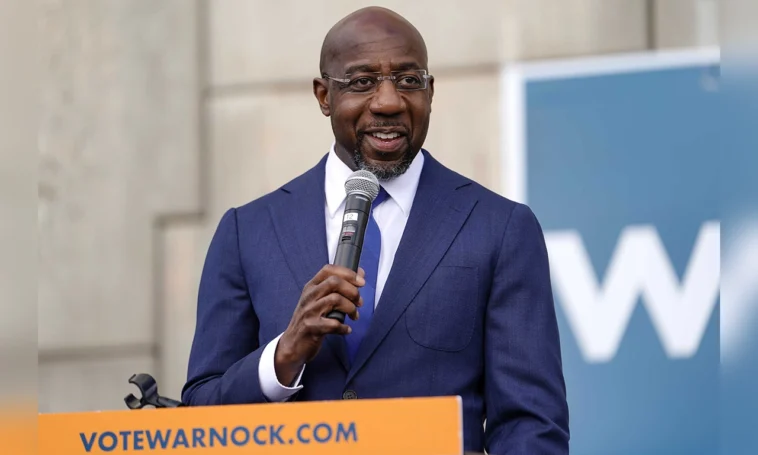Raphael Warnock slams GOP backlash against Biden for declaring Easter as Transgender Day of Visibility. The clash between political figures regarding President Biden’s proclamation of March 31 as Transgender Day of Visibility alongside Easter highlights broader societal divisions over issues of identity, faith, and inclusivity. At the center of this debate are conflicting interpretations of religious principles, social justice, and political agendas.
Rep. Mike Johnson’s criticism, accusing the Biden administration of betraying Easter’s central message by proclaiming the same day as Transgender Day of Visibility, reflects a perspective rooted in traditional Christian values.
For many believers, Easter symbolizes the resurrection of Jesus Christ, a sacred event commemorated with reverence and solemnity. From this viewpoint, any juxtaposition of Easter with events perceived as contradictory or secular can be seen as a dilution or disrespect of religious significance.
“Banning sacred truth and tradition – while at the same time proclaiming Easter Sunday as ‘Transgender Day’ – is outrageous and abhorrent,” Johnson wrote in his post.
In contrast, Sen. Raphael Warnock’s response underscores a different interpretation of Christianity, one that emphasizes compassion, inclusivity, and social justice. As a Baptist pastor, Warnock frames the issue within the context of Jesus Christ’s teachings, which centered on marginalized communities and advocated for love and acceptance.
From this perspective, recognizing and supporting transgender individuals on a day dedicated to visibility and awareness aligns with the principles of empathy and equality championed by many progressive Christians.
The debate extends beyond religious interpretations to encompass broader societal attitudes towards gender identity and LGBTQ+ rights. Critics of the Transgender Day of Visibility often express concerns about the perceived erosion of traditional values and norms, viewing gender identity issues as a threat to social cohesion and moral order. On the other hand, proponents of LGBTQ+ rights argue for greater recognition and acceptance of diverse identities, citing the importance of visibility in combating discrimination and violence against transgender individuals.
The involvement of political figures like Rep. Marjorie Taylor Greene further politicizes the issue, framing it within the context of partisan divides and ideological battles. Greene’s assertion that Biden’s proclamation mocks faith and defies God reflects a narrative commonly employed by conservative politicians to rally their base and mobilize support. By framing the issue as a clash between religious values and secular liberalism, critics seek to galvanize opposition and mobilize voters ahead of upcoming elections.
Sen. Warnock’s invocation of Martin Luther King Jr. and his emphasis on using faith as a bridge to unite rather than divide speaks to a broader tradition of social activism rooted in religious principles. Throughout history, many progressive movements, including the civil rights movement, have drawn inspiration from religious teachings to advocate for social change and justice. By positioning himself within this tradition, Warnock seeks to appeal to voters who prioritize inclusivity and equality in their political leaders.
President Biden’s proclamation itself reflects the administration’s commitment to advancing LGBTQ+ rights and combating discrimination based on gender identity. By calling attention to the challenges faced by transgender individuals and urging Americans to work towards eliminating violence and discrimination, the proclamation signals a broader effort to promote equality and inclusivity.




2 Comments
Leave a Reply2 Pings & Trackbacks
Pingback:‘Who Really Is Their God?’ Sen. Warnock Links Trump Supporters to Segregationists and Slavery Advocates - Hard Knock News
Pingback:Raphael Warnock defends Biden, claims America is 'better' than electing Trump - Hard Knock News
Join the Community and Be a Part of the Conversation
You must be logged in or registered to post a comment.